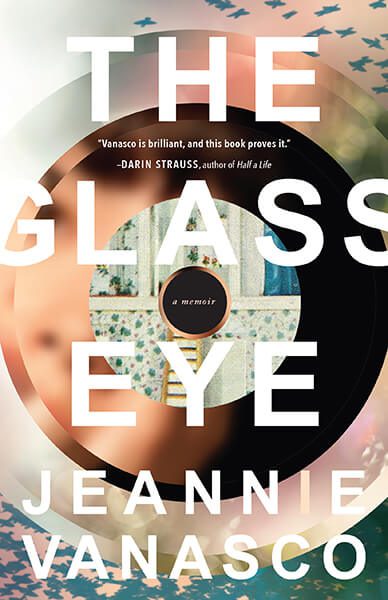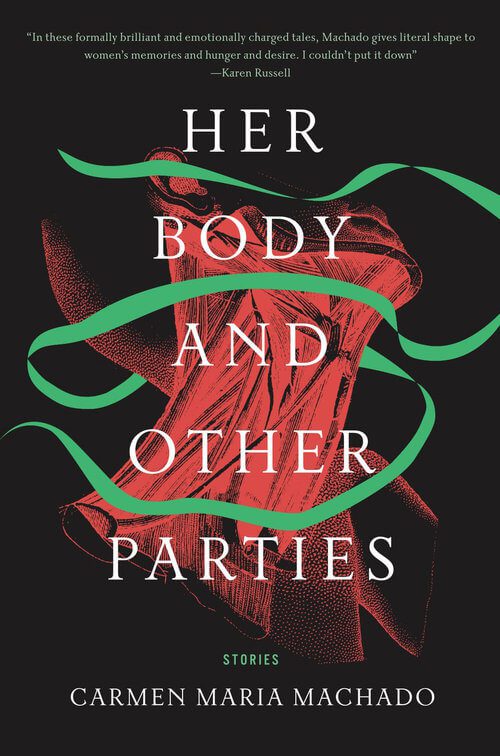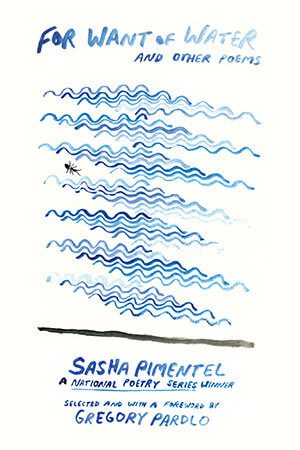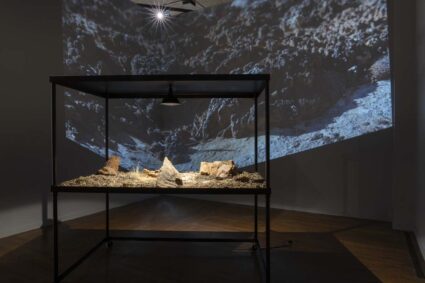
Nonfiction
The Glass Eye
by Jeannie Vanasco
Tin House Books, October 3, 2017
What begins as a remembrance of her lost father swiftly transitions to a writer wrestling with her own uncertain identity. Jeannie Vanasco shared a first name with her long-dead half-sister Jeanne, and after she introduces Jeanne in the memoir, the narrator refuses to stay put. Soon she is questioning her own memories, her recounting of her father and her mother’s stories, and how she can best serve a telling that is entirely her own. Through diligent and nearly constant analogy, Vanasco creates a metaphor from each of her memories. Some of these associations feel false or overly tidy or inaccurate, akin to what her doctors call “clang associations,” words that overlap in sound rather than meaning. And yet the many doublings she attests to—the name of her street, her house itself, her father’s false eye, even the duality of the narrator’s bipolar disorder—suggest her double role in her family as both a vigil for and a counter-narrative to her sister, both already lost and still alive.
Excerpt:
“I could write this story chronologically and divide it into three parts titled ‘Eye,’ ‘I,’ and ‘I,’ but I worry that I lose authority as a storyteller if I recall memories from age four. I could preface some of those memories with ‘I remember,’ or in memoir is such subjectivity implied?”

Fiction
Her Body and Other Parties
by Carmen Maria Machado
Graywolf, October 3, 2017
If you, like so many of us this season, find yourself craving good scary stories AND solid feminist revenge narratives, you’ll find a lot to love in Her Body and Other Parties, Carmen Machado’s debut collection. Machado uses fairy tales, ghost stories, and urban legends as the backbones of many of these stories, toying with the reader’s expectations and reshaping the genre in the process. But while she subverts expectations for her characters’ gender and sexuality, as when a lesbian couple unexpectedly conceives a child, she often hews closely to the tropes of horror. In my reading, Machado is at her best when rendering in time- and placeless prose the everyday true horrors of being a woman in a patriarchal society. Life in a body, particularly life in female body, reveals itself through ongoing dysphoria and a constant vulnerability to threat. In several stories, like “The Husband Stitch” and “Eight Bites,” she hones in on the disturbing yet familiar medical traumas of childbirth and surgery. Her Body and Other Parties has garnered enormous praise, including a National Book Award nomination, and rightly so. Lesbian horror is something we’ve all been missing.
Excerpt:
“I have dreamt of inhaling underneath water and this is what it feels like: panic, and then acceptance, and then elation: I am going to die, I am not dying, I am doing a thing I never thought I could do.”

Poetry
For Want of Water: And Other Poems
by Sasha Pimentel
Beacon, October 17, 2017
Filipina poet Sasha Pimentel has a decidedly global background. Born in Manila, she grew up in Saudi Arabia and the U.S. and now lives in and writes about El Paso, Texas. Her latest collection brings thirst and scarcity, desert tenets, in touch with everyday life and everyday violence on the border. In each poem, the space of the border is compressed into a series of scenes linked by the poet’s or her characters’ bodies. “Outside my window: Juárez burns,” the poet writes in “13 Ways of Knowing Her.” And in the title poem: “A boy / drags his mother across the desert.” Winner of the National Poetry Series, For Want of Water is a startling, deeply felt collection that sheds light on life lived alongside drug wars, femicides, and a desert that, though beautiful, remains treacherous.
Excerpt:
She’s unloading the washer, my hands
in soap and sauce, and Juárez glows
at the end of the window, the bridge
shiny as an eel.


